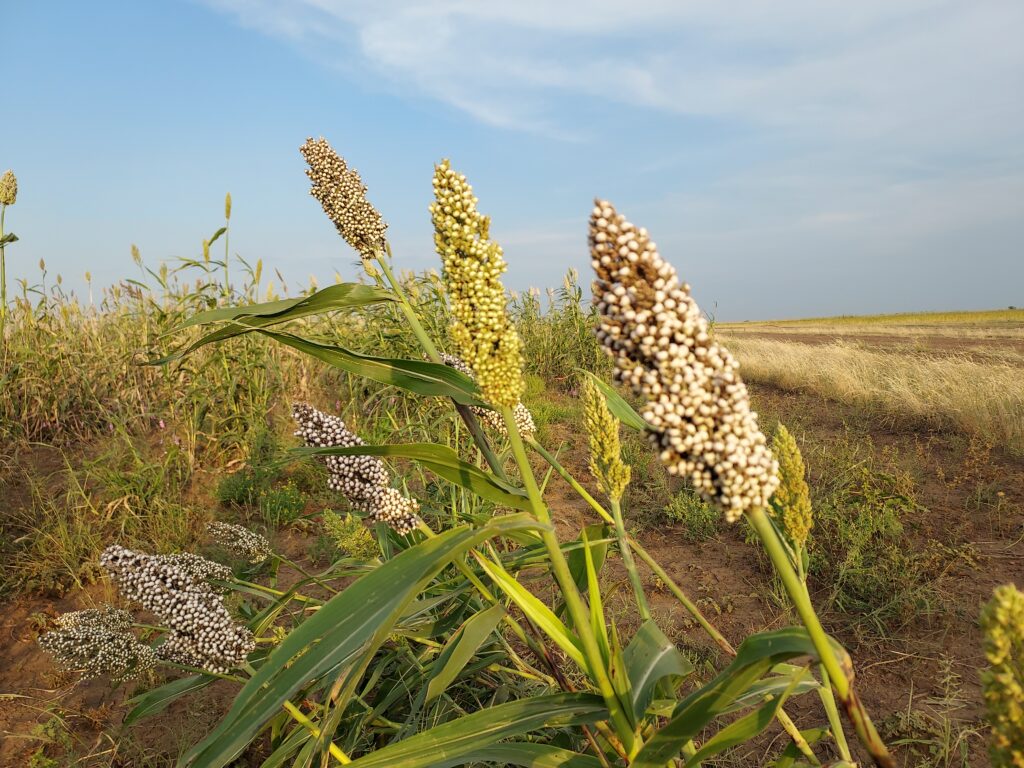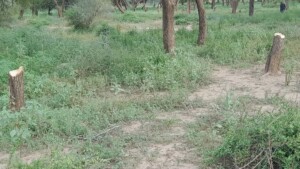South Darfuri warn about famine in the region

Sorghum cultivated in Sudan (File photo: Dabanga)
NYALA –
People in Nyala, capital of South Darfur, expect extreme food insecurity leading to famine in the region. The prices of agricultural products are skyrocketing.
Speaking to Radio Dabanga, a number of Nyala residents complain of “another significant rise” in food prices. They attributed the problem to the scarcity of supply, in particular of staple food such as sorghum and millet, and the closure of plundered markets in the city.
“The price of a 100kg sack of Wad Ahmed sorghum has already risen from SDG18,000 to SDG30,000 (about $50),” a crop trader at the Shaabi Market in Nyala South said.
“A sack of millet now costs SDG52,000, while customers do not have the purchase power anymore to even buy food for the old prices.”
He added that “only few farmers dare to visit and cultivate their land because of the ongoing violence” and warned that the current food insecurity “will definitely lead to famine in the region.”
In May, traders in Nyala warned of an imminent food gap after the city’s crop market was destroyed by fire following fighting between army soldiers and paramilitaries of the Rapid Support Forces.
Earlier this month, UN Food and Agriculture Organization (FAO) began distributing 10,000 tonnes of sorghum, millet, groundnut, and sesame seeds to farmers in those parts of Sudan that are relatively secure.
Raids
The residents of the South Darfur capital, the second largest city in the country, also reported that they suffer from the ongoing violence and the plundering of shops and houses.
“Heavy random shooting continues day and night, while bandits are roaming the streets in their four-wheel drive vehicles and on their motorcycles. They regularly raid shops and homes, and rob the owners of their money and property,” they said.
“We have lost our income and do not know what to do anymore to get our daily food.”
The warehouses of the World Food Programme (WFP) in El Obeid, capital of North Kordofan, were plundered on June 1.
The warehouses are part of the organisation’s largest logistic bases in Africa – which “form a vital lifeline to millions across Sudan and South Sudan,” WFP said. “Food for 4.4 million people is at stake.”
‘Rapid increase’
The Arab League last week warned of the impact of the ongoing war in Sudan on the food security in the country and the Arab region.
In late April, the Famine Early Warning Systems Network (FEWS NET) reported that the war has led to a rapid deterioration in food security conditions.
The network foresaw “a sharp, rapid increase” in the population facing Crisis and Emergency food situations, in particular in Khartoum and Darfur.
“Before the outbreak of conflict, Sudan already faced a high burden of food insecurity given the exceedingly high cost of living amidst the persistence of poor macroeconomic conditions and intercommunal conflict,” the network stated.
Sudanese economists have estimated the economic loss caused by the war over the past three months at $9 billion, while the value of property and goods plundered is estimated at $40 billion.











 and then
and then